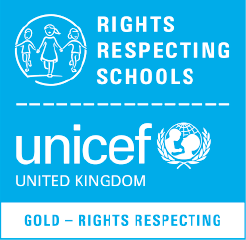Our curriculum is carefully planned and sequenced by our school stakeholders to provide for our children’s broader development and to enable them to discover and develop their personal interests and talents.
At Sydenham Primary School, we believe that every child should be given the opportunity to experience life and lessons beyond the classroom walls as a regular part of growing up. These experiences expand the horizons of young people, opening their eyes to the wonders of areas such as art, heritage, culture, adventure and the natural world, through class trips, visitors to school and extra-curricular clubs. (Article 15: freedom of association; Article 31: leisure, play and culture)
We ensure that our pupils have access to life-changing educational experiences by providing a wide range of engaging and exciting learning opportunities which raise children’s aspirations and achievement.

We are working towards achieving the nationally accredited LOtC Mark that supports and celebrates educational settings who provide meaningful experiences beyond the classroom across the whole curriculum, indoors and out, on and off-site. This has ensured that we are putting creative learning experiences at the heart of what we do at Sydenham, and is helping to enhance children’s academic achievement and personal development, as well as supporting their health and well-being, and their spiritual, moral, social and cultural needs.
To find out more about the Council for Learning Outside the Classroom, please clisck on the link below:
Our curriculum supports children to develop their character – including their resilience, confidence and independence. Our school Learning Characters are integrated into all aspects of learning and teaching to support children in developing a growth mindset. Children are taught metacognitive strategies in conjunction with specific subject content to support them in thinking about their own learning so that they make effective progress. Children are supported by their teachers to plan, monitor and evaluate their learning throughout the school and across different subjects.

We work with the UK Committee for UNICEF to create a safe and inspiring place for our children to learn, where children are respected; their talents nurtured and they are able to thrive. Our Rights Respecting School Award embeds these values in daily school life and gives our children the best chance to lead happy, physically and mentally healthy lives and to be responsible, active citizens. (Article 24: health and health services; Article 29: goals of education)
Teachers talk to children of all ages about the big issues facing the world today, from refugee crisis to climate change. Children are prepared for life in modern Britain, and equipped to be responsible, respectful and active citizens who contribute positively to society, and develop an understanding and appreciation of diversity. (Article 2: non-discrimination; Article 14: freedom of thought, belief and religion; Article 22: refugee children; Article 23: children with a disability; Article 30: children from minority or indigenous groups)
Together, our children and the rest of our school community learn about children’s rights, putting them into practice every day. At Sydenham, children’s rights are promoted and realised, and the adults and children work towards this goal together. (Article 42: knowledge of rights)
Children at Sydenham Primary School are actively encouraged to participate, contribute and influence our school curriculum and learning community. We take on board children’s opinions, experiences and needs through our junior leadership teams, including: UNICEF Ambassadors, Arts Ambassadors, RSC Ambassadors, Learning Detectives, School Councillors, Online Safety Ambassadors, Mental Health Champions and Eco Committee Reps. Our junior leaders are elected by other pupils to represent the majority’s attitudes, requirements and views. Children work with staff, governors, members of the local community, parents and carers to discuss and analyse various school issues and project ideas, and come up with solutions for school improvement. (Article 12: respect for the views of the child)
Please click on the curriculum links on the sign post to the left for further information and on the link below to see our Curriculum Map: